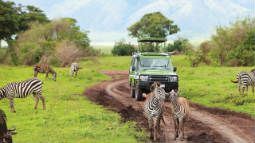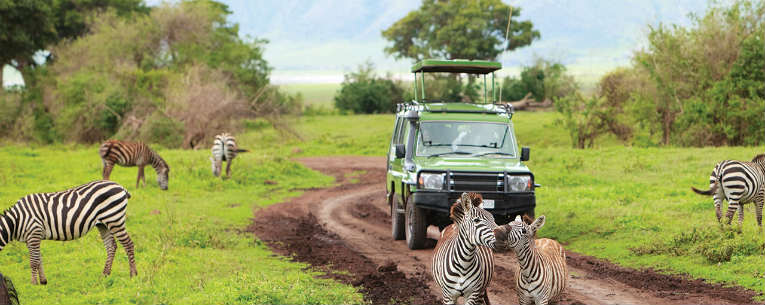My pediatrician looked horrified when she learned I was taking my children to Botswana and Zimbabwe for a safari trip. "I would never take my kids to Africa. It's such a dangerous place," she declared. Sadly, that was the attitude we met time and time again. The reality? Africa is a large continent filled with many countries. And, yes, some of them may be dangerous, but others are definitely fine for a family safari vacation. Botswana, for example, is one of the safest countries in Africa. And while many Americans are still leery of taking their children to Africa, it's not uncommon to see European families enjoying a thrilling safari alongside their excited kids.
Best Countries for a Family Safari
Botswana
With a thriving diamond industry to support it, Botswana is one of the most politically stable and safest countries in Africa. It's also home to the largest population of elephants in Africa. According to the Telegraph, a safari vacation in Botswana is definitely going to hit your wallet harder than the same type of trip in East Africa or South Africa.1 Wanting to offer a more exclusive experience, this country has limited the number of accommodations available to tourists. But there's a reward for those willing to pay the higher price for a safari in Botswana — fewer crowds. In East Africa, it's not uncommon for a lion kill to be completely surrounded by vehicles jockeying for a better view. In Botswana, on the other hand, there will be times when your family may be in the only vehicle viewing an interesting sighting.
Kenya and Tanzania
These two neighboring East African countries are the ones that most people think of when they hear the word safari. Kenya is home to the beautiful Masai Mara, while Tanzania is the site of the magnificent Serengeti and the world-famous Ngorongoro Crater. In addition, both Tanzania and Kenya boast numerous smaller, less well-known parks. Then there's the Great Migration, the annual mass movement of approximately 1.7 million wildebeest and 700,000 zebras and gazelles across the Masai Mara and the Serengeti. Nowhere else in Africa can you see herds of this size.
Although both countries are very similar, Tanzania may have a slight edge. According to CNN, Tanzania was named Africa's best safari country in 2013, with Kenya finishing third, behind Botswana.2
South Africa
This country is home to a large number of private game reserves as well as to some very nice national parks. One of South Africa's most popular parks is the 7,523-square-mile Kruger Park, which offers your children a good chance of spotting the big five: the lion, elephant, rhinoceros, leopard and cape buffalo. South Africa is also an excellent choice for families that want to do other things in addition to going on safari. For example, you and your family can enjoy diving with sharks or visiting a family-friendly winery. Another big plus is that much of South Africa is malaria-free.
What Is the Best Age to Take Your Children on Safari?
This depends a lot on the maturity of your children, but the first time I took my kids on safari, they were in the third and fifth grades. I wanted them to be old enough to appreciate and remember the awesome sights they would be seeing and also sufficiently mature to remain well-behaved for long periods of time. Animals, and your fellow safari mates, aren't going to appreciate a squirmy, whiny child or one who screams excitedly and scares a cheetah as it's stalking its prey. On the other hand, some teenagers might get sulky if they begin to miss their friends, and few things can ruin a trip quicker than a teen in a bad mood.
Another consideration when trying to decide if your children are old enough to take on a safari is the typical itinerary. The best times for viewing wild animals are in the mornings and the evenings, not during the heat of the day. That means your children have to wake up at the crack of dawn every day.
It's also important to check if your safari outfitter has a minimum age limit. Many lodges and tented safaris don't accept children younger than 12 for a good reason. When you're staying in the bush, you're surrounded by wild animals, so a child who isn't being watched properly could easily be viewed as prey by predators. On the other hand, the lodges that do accept young children often allow them to stay either free or at a discount in their parents' room.
Private game reserves in South Africa are particularly good at catering to families. For example, Ant's Hill and Ant's Nest in Vaalwater offer several types of safaris, including on horseback, by jeep and on walkabouts. It can offer these safaris for children because, as a private game reserve, it has chosen not to have elephants and lions on its property. Pilanesberg National Park is another excellent choice because most of its accommodations are fenced in to prevent a surprise visit by predators.
A Trip of a Lifetime
Although my children have traveled to many different countries, the safari is the trip they still talk about the most. And just an FYI to my pediatrician, we never once felt unsafe — well, maybe a bit scared when the elephant was chasing after our Jeep. But that's a story for another day.
Related Articles








Share this Page